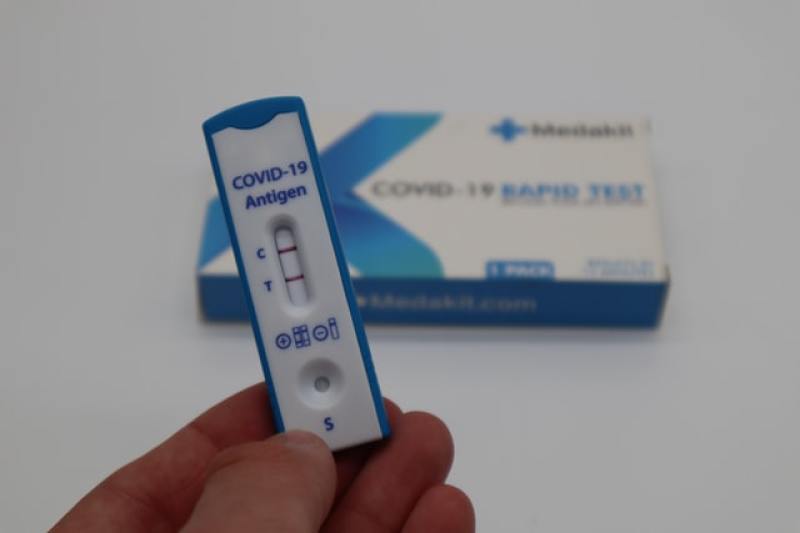
In February, the Cincinnati Drug and Poison Information Center announced an increase in accidental exposure to a chemical called sodium azide, which is found in some at-home COVID testing kits. Cincinnati Children's reported that they have seen "an uptick in accidental exposures to a substance" in the at-home COVID testing kits and that poison control centers across the U.S. "have been reporting the same finding.
According to Cincinnati Children's, the substance of concern is called a reagent liquid that is used to induce "chemical reaction that detects the presence of coronavirus." This liquid contains sodium azide, which is used as a preservative in the at-home COVID testing kits.
The National Poison Control Center has also issued a warning about the chemical, the Epoch Times reported. According to the agency, "It is important to know that the extraction vial in many rapid antigen kits includes the chemical sodium azide as a preservative agent. The BinaxNow, BD Veritor, Flowflex, and Celltrion DiaTrust COVID-19 rapid antigen kits all contain this chemical."
Sodium azide is a colorless, odorless powder that is also found in things such as herbicides, pest control agents, and airbags for cars. A Health Canada advisory reported that small doses of the chemical may lower blood pressure, while larger doses "may cause more serious health effects."
The Cincinnati health officials said that most common calls to poison centers were about concerns over children finding the small bottle containing the reagent liquid and putting it in their mouth or spilling it on themselves. Meanwhile, in adults, complaints have been about mistaking the container for eye drops.
Cincinnati Children's Hospital Medical Center's pharmacist and clinical toxicologist Sheila Goertemoeller reported that they started receiving reports on exposures to the at-home COVID test kits "around early November" and such reports came from "all ages," but that she was "very worried about our young children."
Similarly, Dr. Kelly Johnson-Arbor of the National Capital Poison Center in Washington told WNEP that accidental exposure to the toxic chemical is occurring among both adults and children. He warned that people must not "leave it on the skin" because it may cause an "allergic reaction or a skin rash."
Dr. Johnson-Arbor also warned against ingesting the solution and to contact poison control immediately if a person does so. He explained that the solutions have "different ingredients," while some may have non-toxic ingredients, others may have "more dangerous ingredients."
Health officials said that there is no need to throw out the at-home COVID testing kits but advised the public to store them properly, away from children's reach and use them mindfully.
Meanwhile, the Food and Drug Administration (FDA) this week also issued warnings about three different at-home COVID testing kits, warning that they have not authorized its use and may pose a risk of false results, NBC 5 Chicago reported.
A series of press releases from the agency warned Americans against using the ACON Laboratories "Flowflex SARS-CoV-2 Antigen Rapid Test (Self-Testing)," SD Biosensor Inc. "STANDARD Q COVID-19 Ag Home Test," and Celltrion DiaTrust "COVID-19 Ag Rapid Test."

















